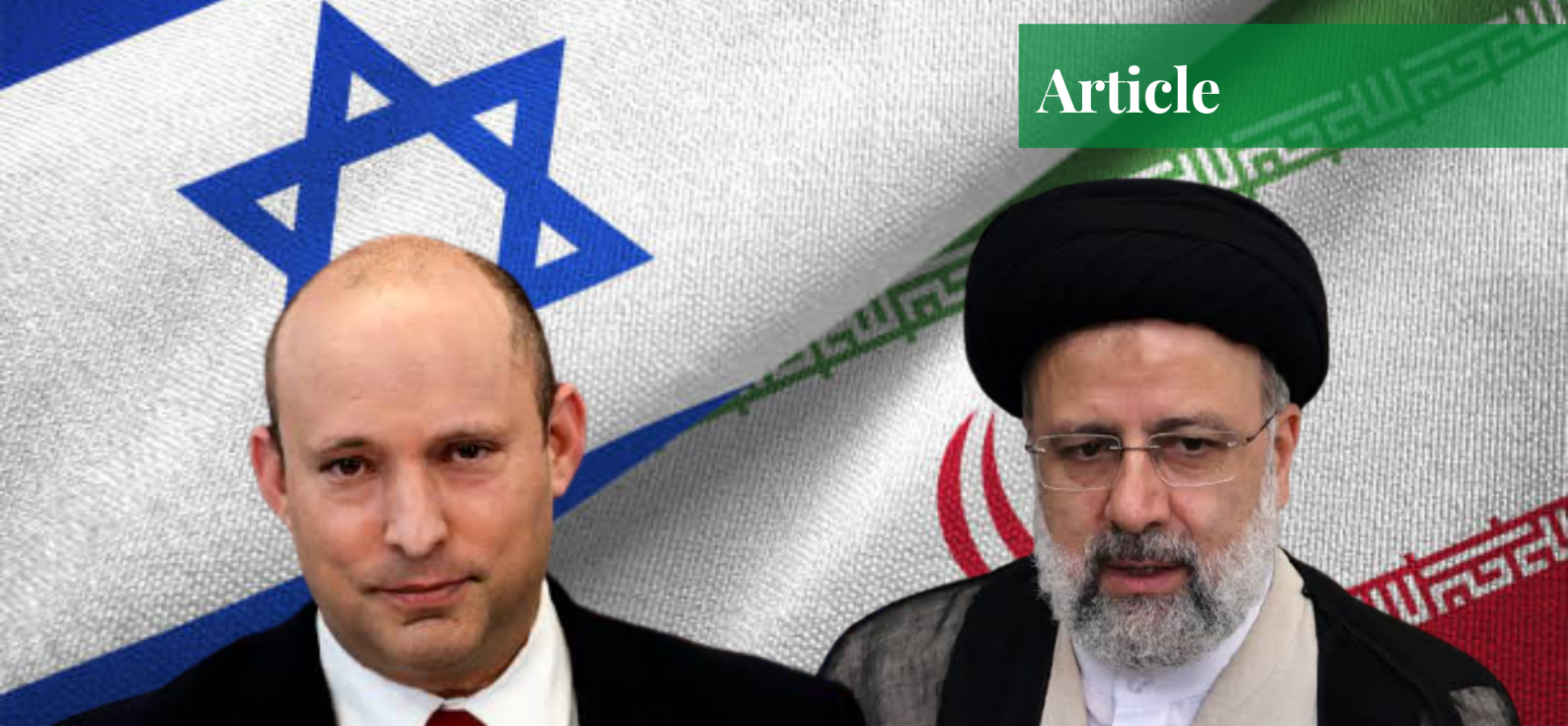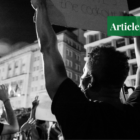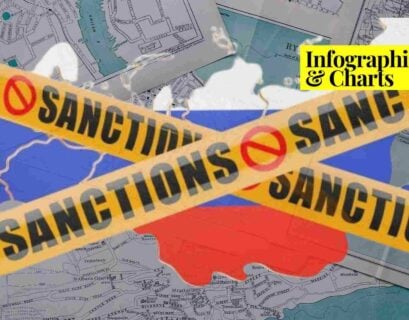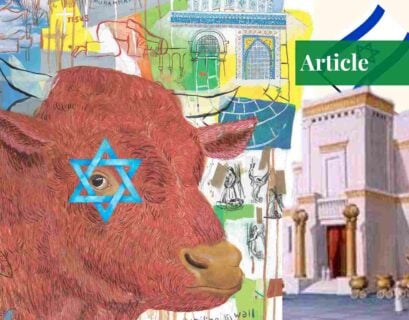Mr Muhammad Hamza Tanvir is an independent journalist and a political analyst, focusing primarily on regional and global strategic and political issues. He has authored numerous articles for different national and international publications.
The Election of Conservative Leaders in Iran and Israel
The recent elections in Israel and Iran have spurred a new debate in the whole world about the possibility of peace in the Middle East. In Israel, the former prime minister, Benjamin Netanyahu, used every possible tool to turn the election in his favor. He killed thousands of Palestinians just before the elections to mold the fervor of the Israelis in his favor, using diversionary war tactics, but that did not prove lucrative.
The Israelis elected a more conservative and far-right politician, Naftali Bennett, as their prime minister, ending the 12 years long rule of Benjamin Netanyahu. Similarly, a far-right conservative leader has also been elected in Israel’s arch-rival state – Iran. The Iranians elected Ebrahim Raisi as their president. This has increased the probability of more confrontation in the Middle East – especially in the Palestinian theatre.
Some people think that the conservative leaders’ election in both countries is merely a coincidence. While some are averse to this perception and think that the elections were rigged in Iran to counter the Israeli threat more effectively than ever, due to the increasing atrocities of Israel in Palestine. People also think that the election of Ebrahim Raisi as the president of Iran is a step of Ayatollah Ali Khamenei’s idea of purifying the revolution.
Whatever might be the case, one thing is for sure – the recent elections and the election of hardliners in the office will decrease the probability of peace in the region and might affect the peace of the whole world. The confrontation will impinge some negative effects on the illegal state of Israel but Iran will be the one to pay a much heavy price.
The reason ensuing this is that Israel’s economy and its technology are much more advanced than that of Iran. On the other hand, Iran is facing multiple issues domestically and globally. One of the key issues in Iran is its shattered economy which leads to other social and security menaces, and will, hence, damage Iran further in case of any direct or indirect confrontation.
A Bird’s Eye View on Both of the Incumbent Leaders
Naftali Bennett
The new Israeli prime minister, Naftali Bennett, is a 49 years old technology millionaire who posits himself as more inclined to the right-wing than his predecessor, Benjamin Netanyahu. He was ambitious for becoming the prime minister of the country for so long but could not succeed. He was once known as Benjamin Netanyahu’s pupil as he was his chief of staff from 2006 to 2008.
Naftali left Netanyahu’s party and joined the right-wing religious Jewish Home Party in 2008. He entered the parliament after his party succeeded in the 2013 elections. He bluntly advocates Israel as a Jewish nation-state and the Israeli’s historical and religious claims to East Jerusalem, the West Bank, and the Syrian Golan Heights—the territory which was occupied by the Israeli’s after the 1967 war.
He once served as the head of the Yesha Council, the political representative group for the Jewish settlers, albeit he admitted that Israel has no claims on Gaza – the city from which Israel withdrew its settlers and troops in 2005. He is averse to the two-state solution to the Israel Palestine conflict, a notion of creating a Palestinian state alongside Israel which is advocated by most of the international community including the incumbent US president Joe Biden.
In an interview in February 2021, he stated that he would not hand over one centimeter of the land of Israel until he has power and control. He disapproved of the truce with the Hamas rulers of Gaza, which ended a flare-up of fighting in 2018, and accused the group of effectively murdering dozens of its own civilians, killed in the Israeli airstrikes carried out in response to the rockets fired by Hamas from Gaza.
Ebrahim Raisi
On the other hand, a judiciary head Ebrahim Raisi has been elected as the president of Iran. The 60 years old Raisi enjoys support from the conservative hardline camp in the country. He will remain in his position as chief justice until he takes oath as the president of Iran because he did not resign from his seat before contesting the elections.
He was reportedly an active participant in the revolutionary movement in the country. He was appointed as a deputy prosecutor in 1985. As per some human rights organizations, Raisi was part of the “death commission” that oversaw the secret executions and disappearance of scores of political prisoners in the aftermath of the Iran-Iraq War.
Amnesty International has also demanded that the new Iranian president must be investigated for his alleged involvement in the mass executions. He will be the first Iranian president who is targeted by the US sanctions over his alleged role in cracking down on the public protests and mass executions.
During his campaign, he has portrayed himself as the champion of hard-working Iranians by announcing to bring back a factory from bankruptcy and boosting local businesses under the US sanctions. His election as a president has increased the probability of an increase in the confrontation between Israel and Iran and more support of Hamas.
Reverberations for Palestine
The election of two conservative leaders in Iran and Israel would have serious repercussions for the people of Palestine. Moreover, Palestine will also be a warzone for the Ebrahim Raisi vs Naftali Bennet power struggle. The new prime minister of Israel is famous for his anti-Palestine ideas. He earned his name as a politician by supporting the illegal settlements of Jews in the Palestinian territory and the atrocities of Israelis against the people of Palestine.
He does not hold any chance to step back from his hardliner approach because he is already being labeled as a “traitor” by some of his conservative supporters because of his coalition with Arabs, leftists, and centrists. His ideological record shows that he would definitely be worse than his predecessor.
The recent bombing by Israeli forces on Gaza, even after the ceasefire, could be interpreted as a symbol that signifies that the plight of the Palestinians is not going to be any better under his rule but would be much more dreadful. Similarly, the election of Ebrahim Raisi as the president of Iran envisages that it will lead to a more hardline approach of the country towards Israel and its allies.
Iran is allegedly supporting Hamas against Israel by providing the organization with military support. The installation of a hardliner president will augment the support of Hamas, which might be, somehow, good for the defense of the Palestinian people but would not cast a significant impact on the Israeli atrocities. Iran, on its part, would not abstain from backing Hamas because the country uses this support as a tool to increase its influence in the Middle East.
Iranian support to Hamas would provide the Israeli forces with an excuse to attack innocent Palestinians and would increase the tensions in the Palestinian theatre—which is intolerable in any case due to the expansionist ambitions of the Israeli settlers. The condemnation and labeling of Ebrahim Raisi as the “hangman” by the new Israeli prime minister, Naftali Bennett, in his first address, depicts the coming storms in the Palestinian theatre.
Impact on Iran’s Economy and JCPOA
Previously, Ebrahim Raisi was an opponent of the Joint Comprehensive Plan of Action (JCPOA), yet, now he says that he supports the deal but will form such a strong government that will steer the deal in the apt direction. The landmark deal between Iran and the world powers was signed in 2015 but collapsed in 2018 when the former US president, Donald Trump, unilaterally withdrew from the pact.
Iran has been enriching uranium at its highest levels ever after the disintegration of the accord. American and Iranian diplomats have been negotiating a revival of the accord in Vienna, since April 2021, through European intermediaries. The newly elected prime minister of Israel has warned the world that the election of Ebrahim Raisi is the last chance for the world to wake up before reviving the covenant and to realize whom they are dealing with.
Israel has always been skeptical of the nuclear deal between the world powers and Iran, and it is most likely that it will try to every possible extent to distort the possible revival of the deal. If the deal is signed successfully, it would prove a beacon of hope for the people of Iran because this revival will cancel the US sanctions on Iran – which have cast a daunting impact on the oil-based economy of Iran.
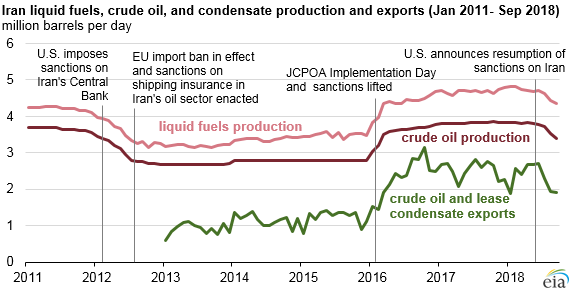
The revival of the economy and decrease in inflation is one of the key challenges the Raisi government faces now because inflation has stirred widespread discontent and frustration among the people of the country. Without the revival of the economy, the dream of purifying the revolution and a perfect theocratic state is also impossible to achieve. If the government fails to deter the economic crisis, the foes of Iran can use the frustration of the people of the country against the stability of the state in the form of protests and anti-government strikes, similar to that of the Arab Spring.
If you want to submit your articles and/or research papers, please check the Submissions page.
The views and opinions expressed in this article/paper are the author’s own and do not necessarily reflect the editorial position of Paradigm Shift
